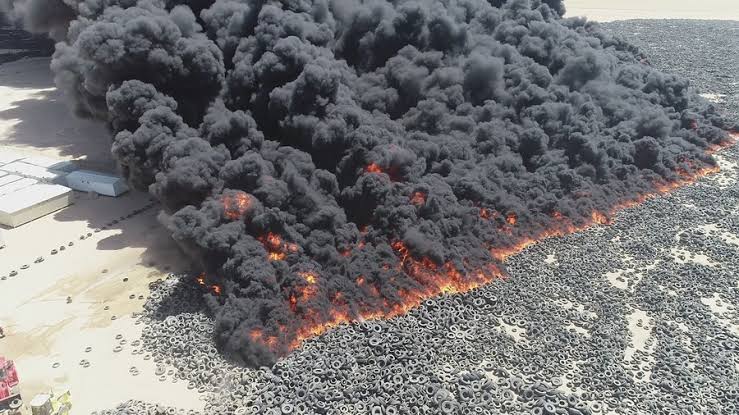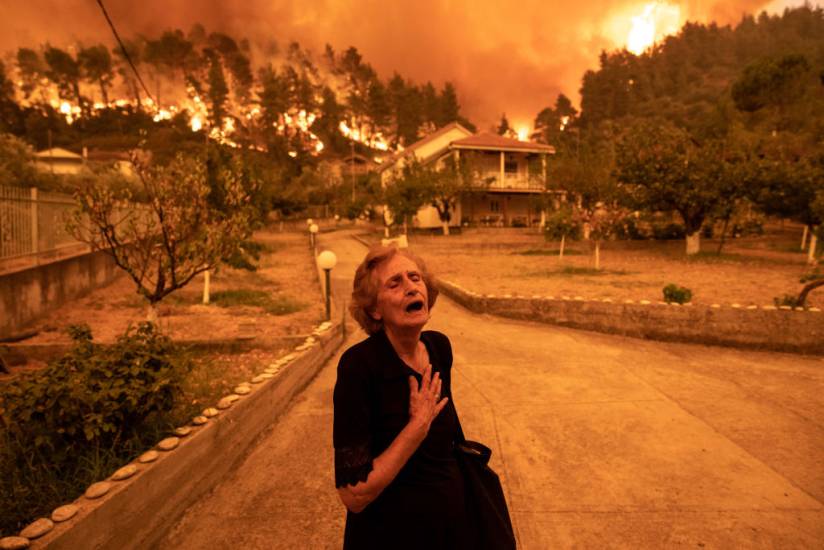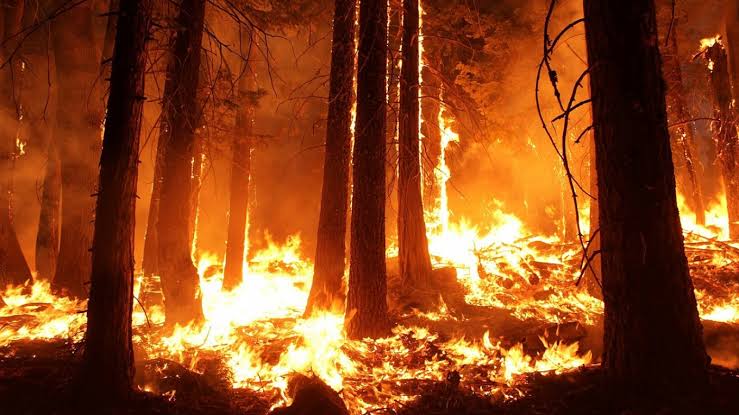When I say the world is on fire, I'm not speaking metaphorically, unfortunately.
Take for example, the Dixie Fire that has been ravaging Northern California for over a month now.
In case it's unclear, it is the second largest wildfire in US history.
As I'm typing this, it has seared through more than half a million acres and it's only about 30% contained.
More power to the brave crews battling the blaze but I've started seeing reports about the arrest of a suspect who allegedly set off a series of additional fires around the area.
That person is 47-year-old Gary Stephan Maynard, who is a part-time college lecturer in Sonoma State's Criminal Justice Department (ironic). He was also reportedly living out of his car and travelling alone across Northern California.
And if the court documents are 100% accurate, this guy is a next-level scumbag.
According to the documents, he entered the evacuation zone and then began setting fire directly behind the first responders that were fighting the Dixie Fire.
So, in addition to trying to enlarge the Dixie Fire, threatening even more lives and property, it increased the direct danger to the first responders.
Furthermore, the documents stated that Maynard's fires were placed in the perfect position to increase the risk of firefighters trapped between fires.
Unsurprisingly, Maynard has flat-out denied setting any fires following his arrest. Investigators said he became enraged and started kicking the jail cell door.
Still and all, he's currently charged with willfully setting the Ranch Fire in Lassen County.
He could face up to 5 years in prison and a $250,000 fine on the same count.
Ultimately, I want to reiterate that the world is on fire. Not just California in America 🇺🇸.
A week ago, Kuwait 🇰🇼 experienced a massive fire after the world's largest tire graveyard lit up.
You also have Greece 🇬🇷 dealing with at least 586 wildfires throughout the country—during one of the worst heatwaves in decades.
In a televised address, the Prime Minister went on to tell the nation that 63 organized evacuations had to take place as the fires approached towns and villages.
So far, hundreds of homes have been destroyed and with all of this the government's response has been seen as inadequate by some, leading to protests outside of the Greek Parliament.
Fundamentally, scientists believe that Southern Europe will experience wildfires like this more often as the region has increasingly experienced larger droughts, but it's also not just Greece 🇬🇷.
Algeria 🇩🇿 is also on the list of countries combating large wildfires and it's going very poorly. Thus far the results are negative. Close to 100 people have died in blazes. Half of which are soldiers who were deployed as emergency firefighters.
These fires are centered around the region—about 60 miles east of the capital—that is notoriously tough, remote, and had dry terrain.
Essentially, the locals there are partially concerned that the fires were started by arson and ultimately, the country's Prime Minister stated this on national TV:
Technically (and very unfortunately), this story could just go on and on and on, basically because you have places like Turkey 🇹🇷, Italy 🇮🇹, Spain 🇪🇸, Peru 🇵🇪 and Lebanon 🇱🇧 all battling unusually large blazes.
Conclusively, the last one that we need to address, is the one that has been relentlessly ravaging Russia 🇷🇺 for weeks now.
So, you see, the fires there are mostly confined to regions that we would call Siberia—which is a blessing and a curse.
Elementally, the region is heavily forested and droughts literally lead to massive forest fire season similar to what happens in parts of California.
But, unlike California, Siberia is sparsely populated with a few population centers—meaning that there's only been a few evacuation orders.
And as a matter of fact, most of the fires aren't even fought by firefighters, and are just allowed to burn out as part of the natural life cycle of the region.
On the contrary, scientists are now more than ever, overly concerned about the scope of this year's fires. So, like much of the world, Siberia has become increasingly dry during the fire season, which exacerbates the problem.
And its fires are so big that massive clouds of smoke can cover the region for weeks—which also has its own ecological problems!
Correspondingly, this year's fires are so mountainous that for the first time, the smoke from them has managed to conceal supersized sections of the North Pole!!
That's a major red flag 🚩, because it simply means that the fires are going further and further north—which is invariably a tremendous threat to drastically disturb the northern region's permafrost!
For the sake of clarity, if the permafrost starts melting now, these fires would be able to release astronomical amounts of trapped greenhouse gases like methane—which will worsen global warming in a way that quickly makes the entire situation one that we have less and less control over.
I'd love to know your thoughts in those comments down below because yes, this is an article, but it's also a conversation.















































No comments:
Post a Comment